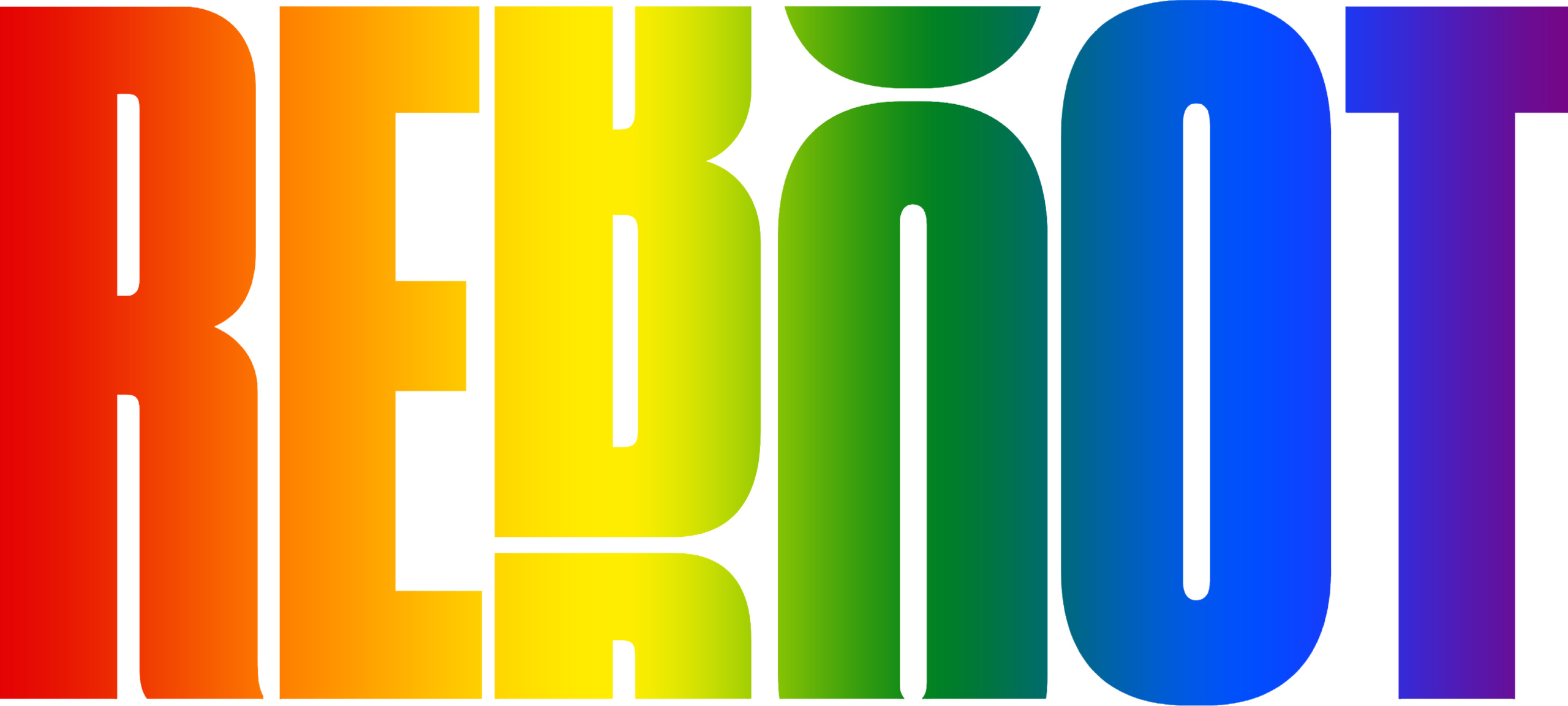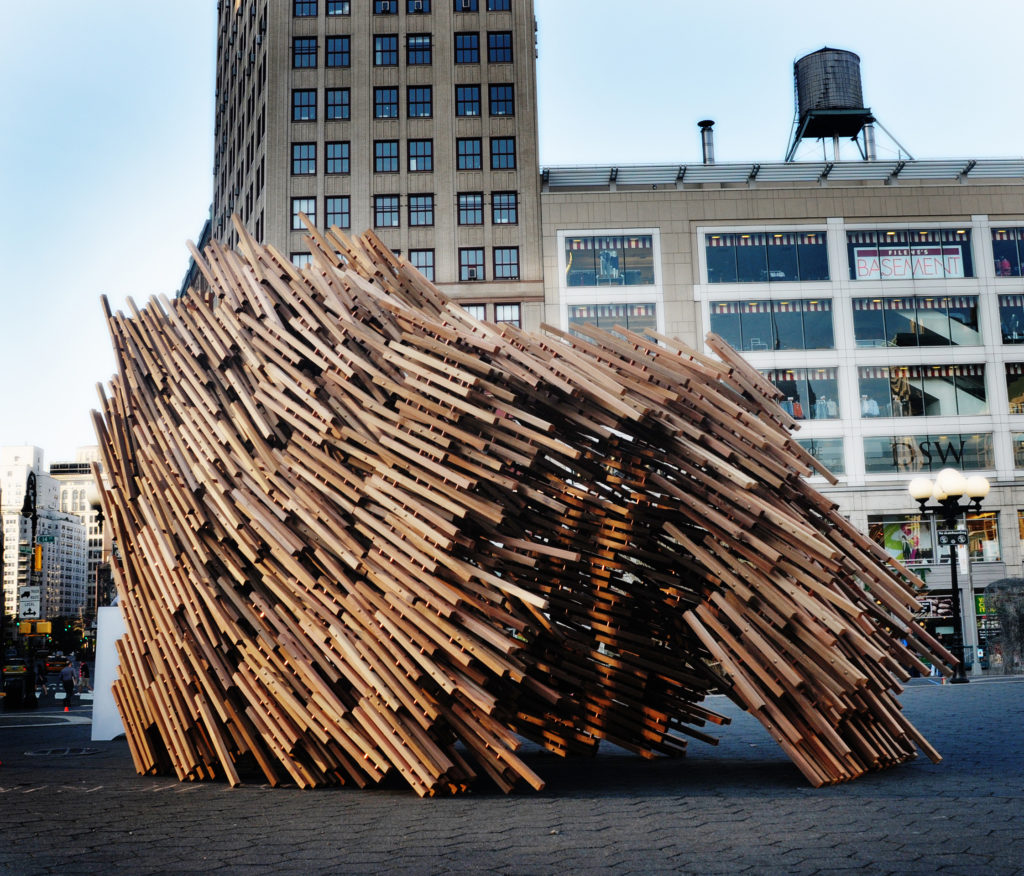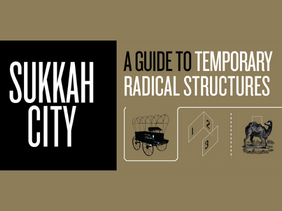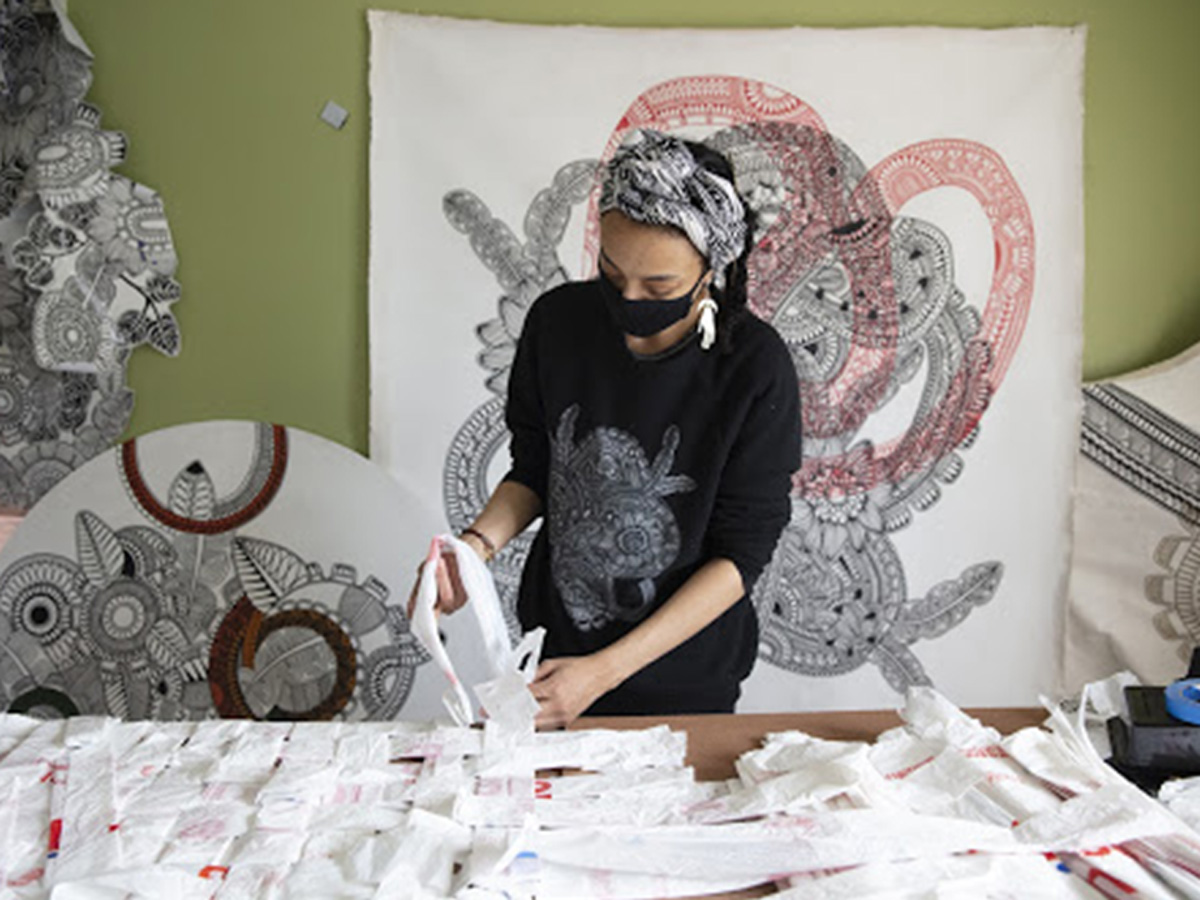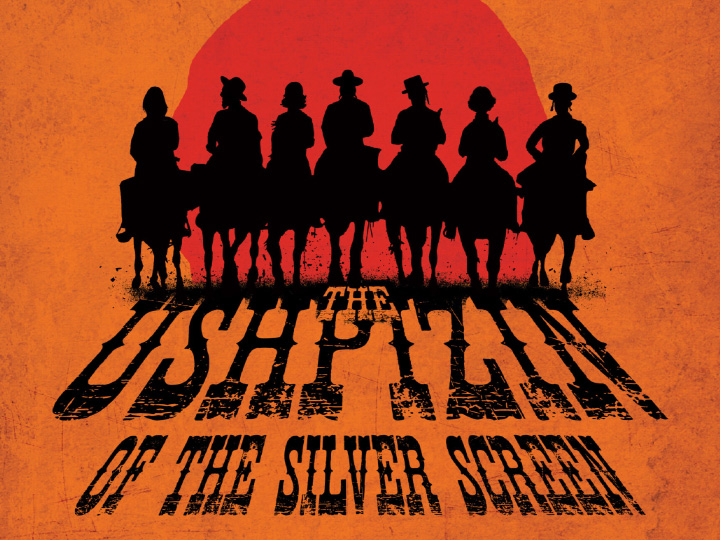Inhabiting Impermanence for Sukkot
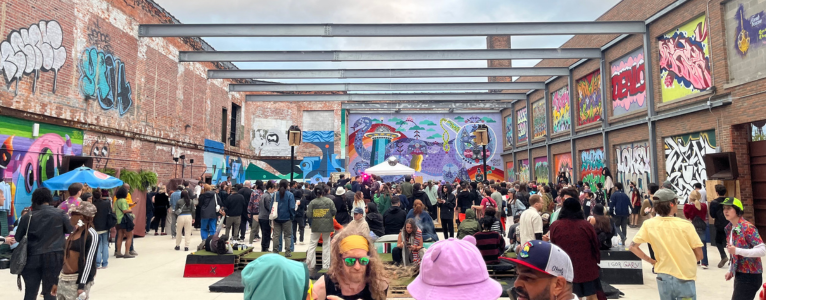
As we celebrate Sukkot, I was prompted to consider the connection between affordable housing and the temporary shelters we build every year to remember the time Jews wandered in the desert.
I recently opened Dreamtroit, a $30 million innovative affordable housing/mixed use/event space/public-private park development in the historic Lincoln Motor Factory. My connection to housing is deep. I spent years documenting the dismantlement – and the resistance to the dismantlement – of America’s first low income public housing project, and then commissioned rituals to be performed during its demolition.
The sukkot we as Jews inhabited in the desert were temporary shelters to protect us on the way to a promised land. They were dwellings for the upwardly mobile, an impermanent solution to get us to where we were trying to go. I believe this was largely the intent of the first affordable public housing projects in America: a stepping stone to lift the working class into the middle class, subsidized housing to eventually allow for homeownership, or “market-rate housing.”
Unfortunately, along the way, middle class ascendancy in America has stalled, and is receding. The expanding need for affordable housing is being widely documented. Affordable housing can no longer be equated with temporary housing. We are finding that people, over generations, require subsidies and assistance to be adequately housed in America. Affordable housing is the promised land.
So is the time we spend in the sukkah where we are meant to be? There are those who believe our time in the desert was not one of hardship. We received manna from the sky, G-D resided amongst us in the Aron ha Kodesh and we did not work but had time to study Torah. The ascendancy from the desert was to a land promised. That land would be full of milk and honey, war, nation building, temple building, poetry and treachery. It is a land of beauty and difficulty and endless work.
Today, our nation of Jews resides both in this land which was promised, but also in diaspora. I find it interesting that the head Sephardic Rabbi has threatened that the orthodox Jews will leave Israel if forced to join the military. Is this an indication that the time in the desert was preferred, when G-D resided amongst us and we were able to study his words all day long?
There is an impermanence in life that forces us to think that our homes are always temporary. Whether it is the demolition of dense low-income housing projects, the 2008 housing crisis, current variable interest rates, eminent domain or the Babylonian expulsion, we have repeatedly been forced into diaspora.
Judaism is largely the blueprint for transitioning from hunter gatherers into an agricultural society. It is full of laws and lessons on how to function as a society which intends to stay in one place. What I take from the time I spend in the sukkah, is to know that the experience of surviving is always in a state of flux, that in Judaism, we are taught to never forget how to also inhabit impermanence.
Oren Goldenberg is an active community builder in Detroit. His work ranges from feature films to complex real estate developments, creating new rituals to free dance parties. He focuses on building sustainable platforms for artists and residents of Detroit. Goldenberg is the developer and co-owner of Dreamtroit, a $30 million mixed-use artist-led affordable housing project in the Northwest Goldberg neighborhood of Detroit. Goldenberg has also spent the past 15 years revitalizing the Isaac Agree Downtown Synagogue, the last synagogue in Detroit. Since 2009, Goldenberg has operated Cass Corridor Films, a film production company by and for the residents of Detroit. Goldenberg is a 2013 Kresge Fellow in the Visual Arts, Best Filmmaker (Real Detroit, 2011), Best Michigan Filmmaker (AAFF, 2006), Michigan Historic Preservation Network Tax Credit Award recipient (2024) and sits on the board of the Downtown Synagogue and Make Art Work 501(c)3. Learn more about Goldenberg here and read about his work in the New York Times and Hyperallergic.
